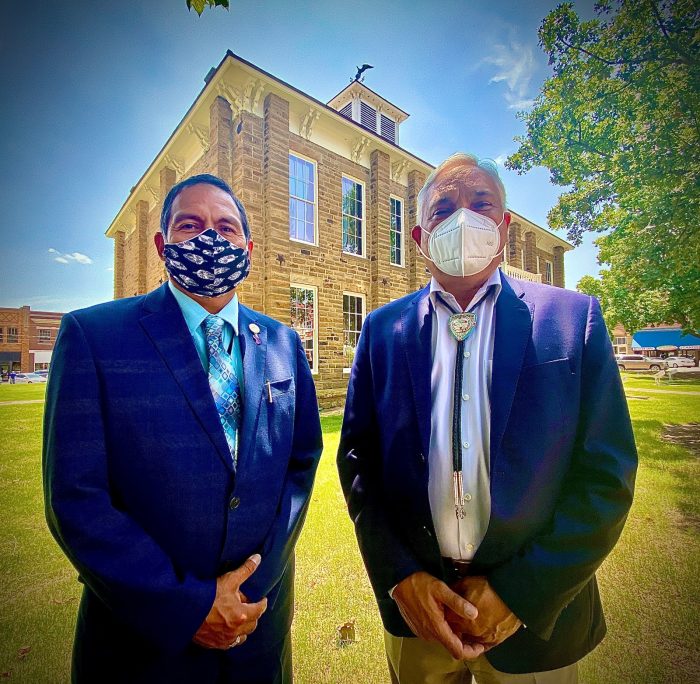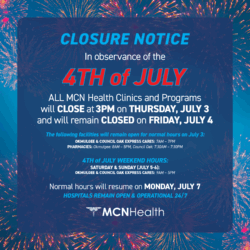Are you willing to wear a mask for your neighbor?
Published Sept. 8, 2020
“Are you willing to wear a mask for your neighbor?”
Dr. David Kendrick, CEO of MyHealth Access Network and OU-Tulsa’s chair of medical
informatics, puts it that simply.
Dr. Kendrick, who is a participating member of the Muscogee (Creek) Nation’s COVID-19
taskforce, shared some sobering statistics. Positivity rates (the percentage of COVID-19
tests performed that are positive), are again on the rise across the Muscogee (Creek)
Nation Reservation. With back-to-school season in full-swing, infection rates among
teenagers and college-aged students has doubled since July and is the fastest growing
group of positive cases. Although young populations typically recover, the clear trend is
for the infection to spread to older populations, ultimately putting elders and vulnerable
populations at risk.
Kendrick said proper masking can curb infection rates.
“The data shows that masking policies are an effective way to counter the community
spread of COVID-19. Communities with mandates have greater reductions in the
percent of positive tests,” he said.
MyHealth is an Oklahoma-based health information exchange, linking more than 4,000
providers and 4 million patients statewide into a community-wide health information
system. Data collected shows that over time, communities with mask mandates have
increasingly lower positivity rates when compared to cities without a mandate. A new
MyHealth analysis shows that 28 days after mask mandates went into effect for six of
Oklahoma’s largest cities, those cities had a 4.6% lower positivity score than cities
without masking policies. Tulsa is seeing a noticeable difference in positivity rates as a
result of its mask mandate with 5.6% decline 28 days after the policy’s effective date.
Many tribal health facilities, including the Muscogee (Creek) Nation Department of
Health (MCNDH), contribute hospital and clinic data to MyHealth and utilize my
MyHealth data to manage and respond to population health trends. Kendrick noted that
upon seeing community trends in a COVID-19 dashboard produced by MyHealth,
MCNDH was quick to respond with mask mandates at tribal facilities to protect citizens.
Kendrick also reported that, according to MyHealth data, MCNDH has the fastest testing
rate in the state. Many in Oklahoma have had to wait days and sometimes even weeks
to get their results back. At MCNDH facilities, rapid tests and results are reported within
an hour on average, which is important to containing community spread.
“MCN’s rapid testing, reporting and analysis allows health officials and healthcare
providers to make important, real-time decisions to keep citizens and the community
safe,” he added.
Kendrick acknowledged that mask mandates can be politically challenging and believes
there are essentially three available paths for communities and tribes to take in
responding to the pandemic. One, shut down entirely, which hurts the economy and
impacts individual livelihoods; two, open up completely and pursue herd immunity,
which puts elders and other vulnerable populations at significant risk; or three, pursue a
middle-of-the-road solution to resume activities with caution and wear masks.
“This is a relatively low-cost, convenient option when compared with death or being the
cause of someone else’s death,” he added. “Wearing a mask yields a high reward, saves
lives and allows us to return to normalcy more quickly.”
Kendrick added that he expects to see a rise in cases resulting from increased social
interaction from Labor Day activities. The spike will likely occur over the next two
weeks, and when combined with the already significant rise in infection rates among
young populations, it is more important than ever for people to wear their masks.
Although many are struggling with coronavirus burnout and pandemic fatigue, the
MCNDH urges citizens to remain vigilant and wear masks to protect citizens, elders and
our community.



;)
